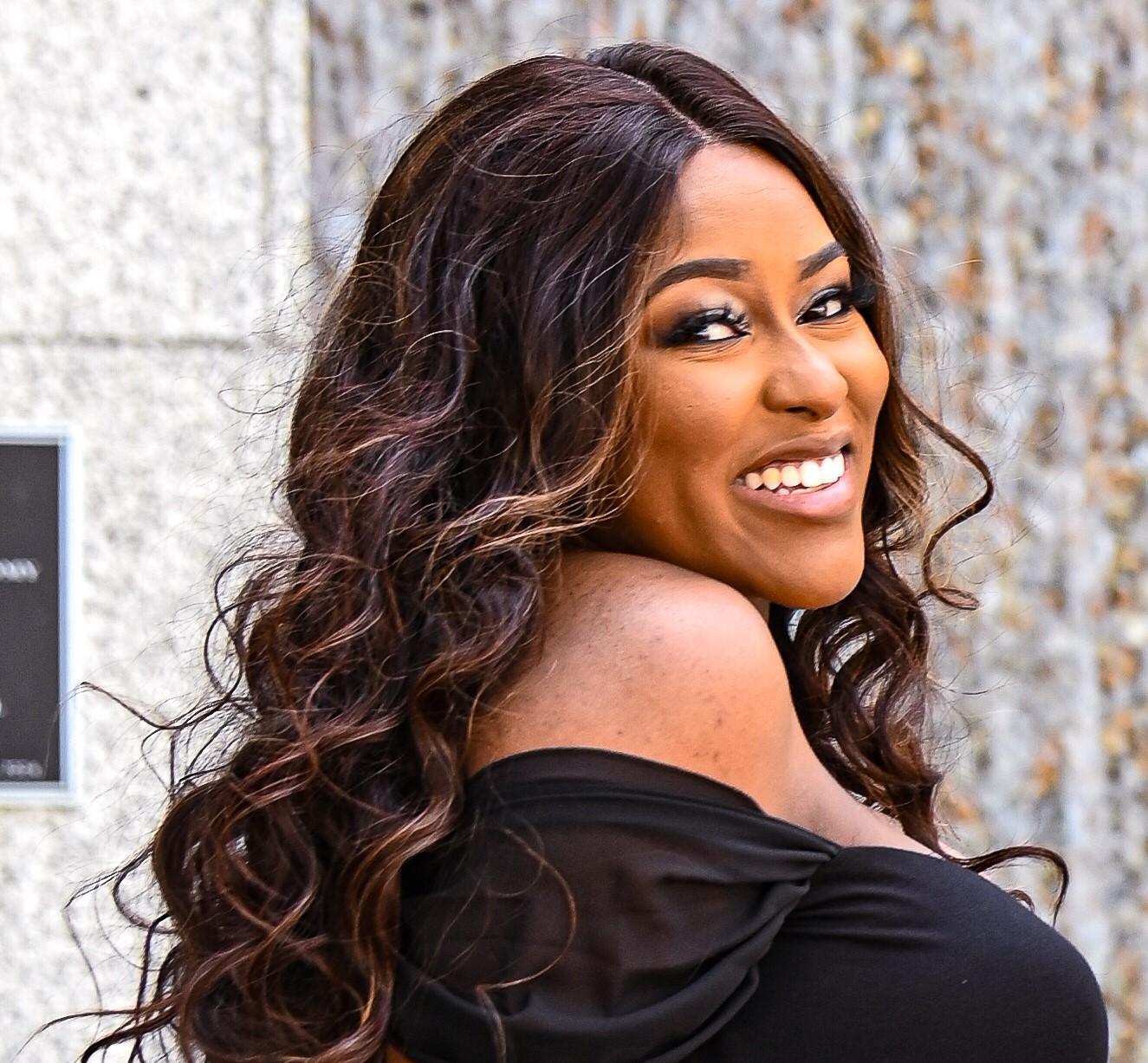Whether you are building a corporate career, starting a business as an entrepreneur, or simply striking out on your own as a creative freelancer, the ability to state who you are proudly and professionally is essential. Telling your own story in a way that resonates is powerful. However, often we struggle to define exactly who we are based on the range and depth of our experiences. We’ve spoken with a few women leaders on advice to define your personal narrative.
1. Lean into your upbringing.
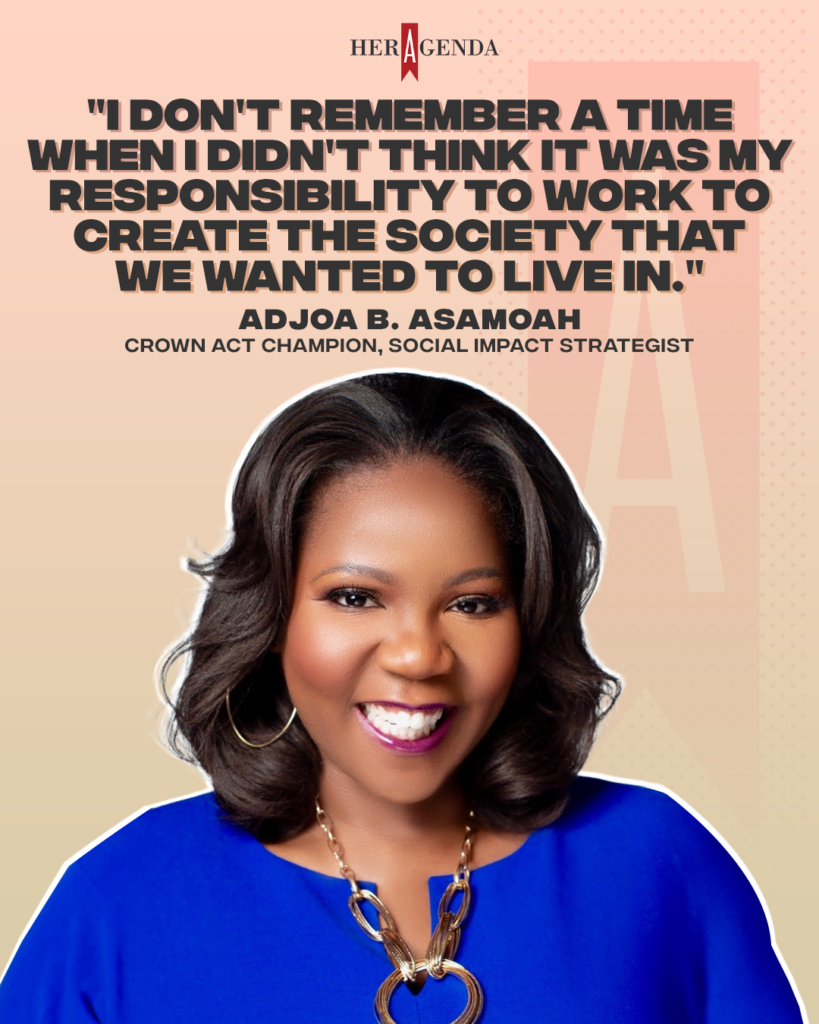
As you’re searching for ways to craft your personal narrative, a great place to start is at the beginning. Your upbringing has directly influenced the person you are today. A great example of that is Adjoa B. Asamoah. Her experiences as a champion for others began young — as a daughter of well-respected activist parents. Before the age of two, she had already attended her first rally. Since then Adjoa has gone from leading her own rallies in high school to being known globally as the CROWN Act champion and recognized through her work related to the CROWN Coalition in 2018 which sought to eliminate race-based hair discrimination. In her interview with Her Agenda, we asked about exploring her identity and her answer is a great indicator that her upbringing was pivotal in shaping her into the powerful activist she is today. Adjoa says, “I don’t remember a time when I didn’t think it was my responsibility to work to create the society that we wanted to live in.”
Read more: A Peek Inside Her Agenda: Adjoa B. Asamoah
2. Speak about your decision-making process
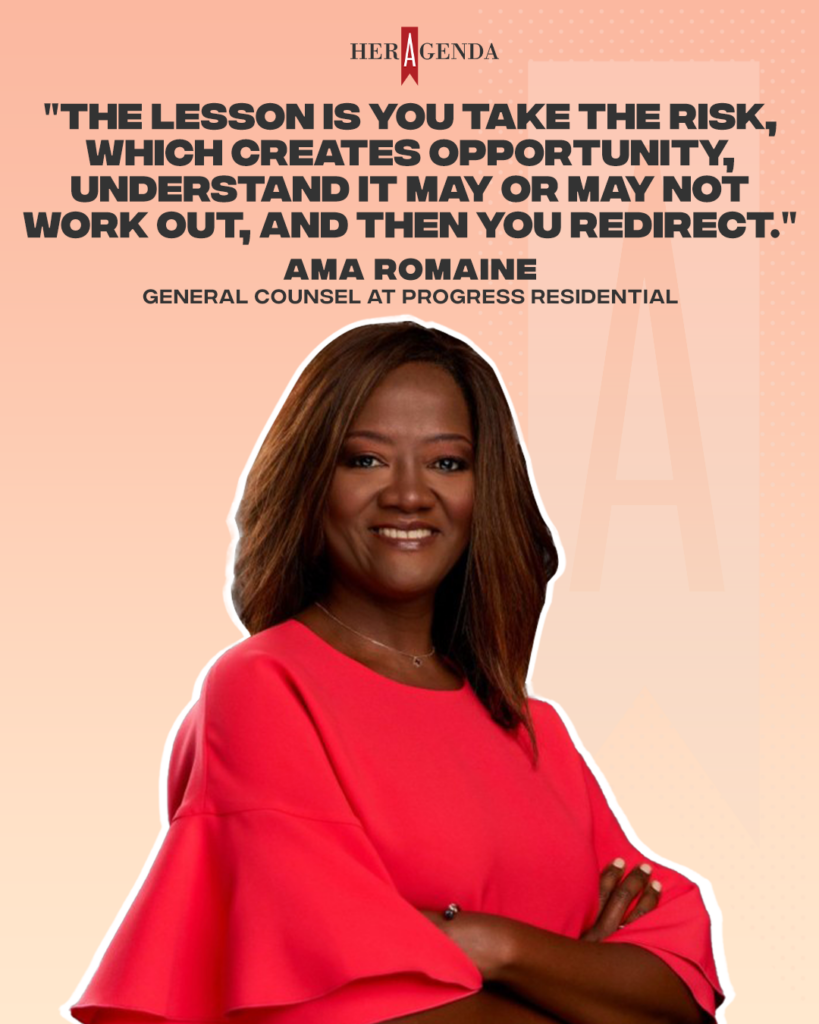
Ama Romaine, General Counsel at Progress Residential, shared a valuable lesson in her interview with Her Agenda about taking a risk. After a decade-long career in hospitality, her desire for growth led her to manifest a new opportunity. That opportunity meant stepping outside of her comfort zone and taking a pay cut to sit in the General Counsel role she desired. Despite warnings from those around her, Ama took the role. The role led to the opportunity to be a General Counsel at G6 Hospitality. When she reflected on the decision, she said, “If I was not in the GC chair I don’t think I would have gotten that opportunity. Sometimes you actually have to get the experience to get the experience or to get the opportunity. The lesson is you take the risk, which creates opportunity, understand it may or may not work out, and then you redirect.”
Read more: A Peek Inside Her Agenda: Ama Romaine
3. Be relatable.
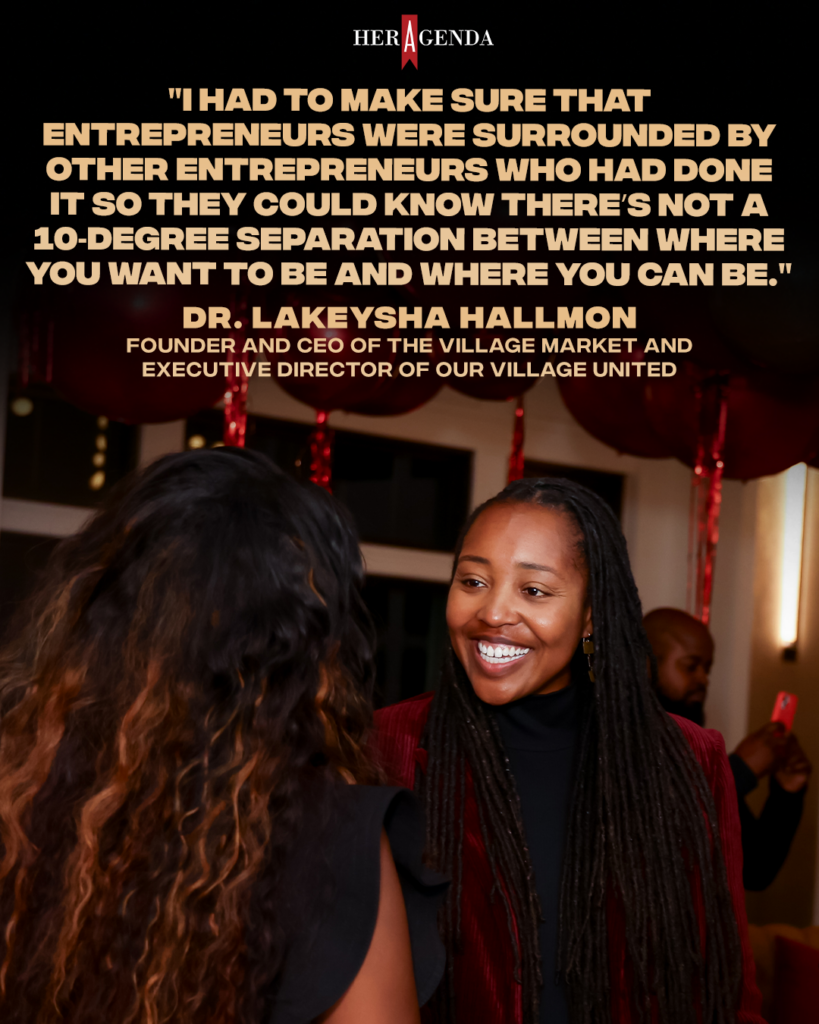
As the Founder and CEO of The Village Market (TVM) and the Executive Director of Our Village United (OVU), Dr. Lakeysha Hallmon known as Dr. Key, has made it her mission to develop community through business owners. In her interview with Her Agenda, Dr. Key discussed how her personal experiences as a solopreneur led her to develop a program that helps other solopreneurs and microbusinesses grow. Between having a vision for her life to support others and her ability to communicate exactly what business owners need helped her to launch the ELEVATE, seven-city tour in partnership with Mastercard. Dr. Key says, “My vision was so clear that if I could elevate the mindset of people, then the business would follow. I had to make sure that entrepreneurs were surrounded by other entrepreneurs who had done it so they could know there’s not a 10-degree separation between where you want to be and where you can be. These are people that look just like you, that started just like you.”
4. Get personal.
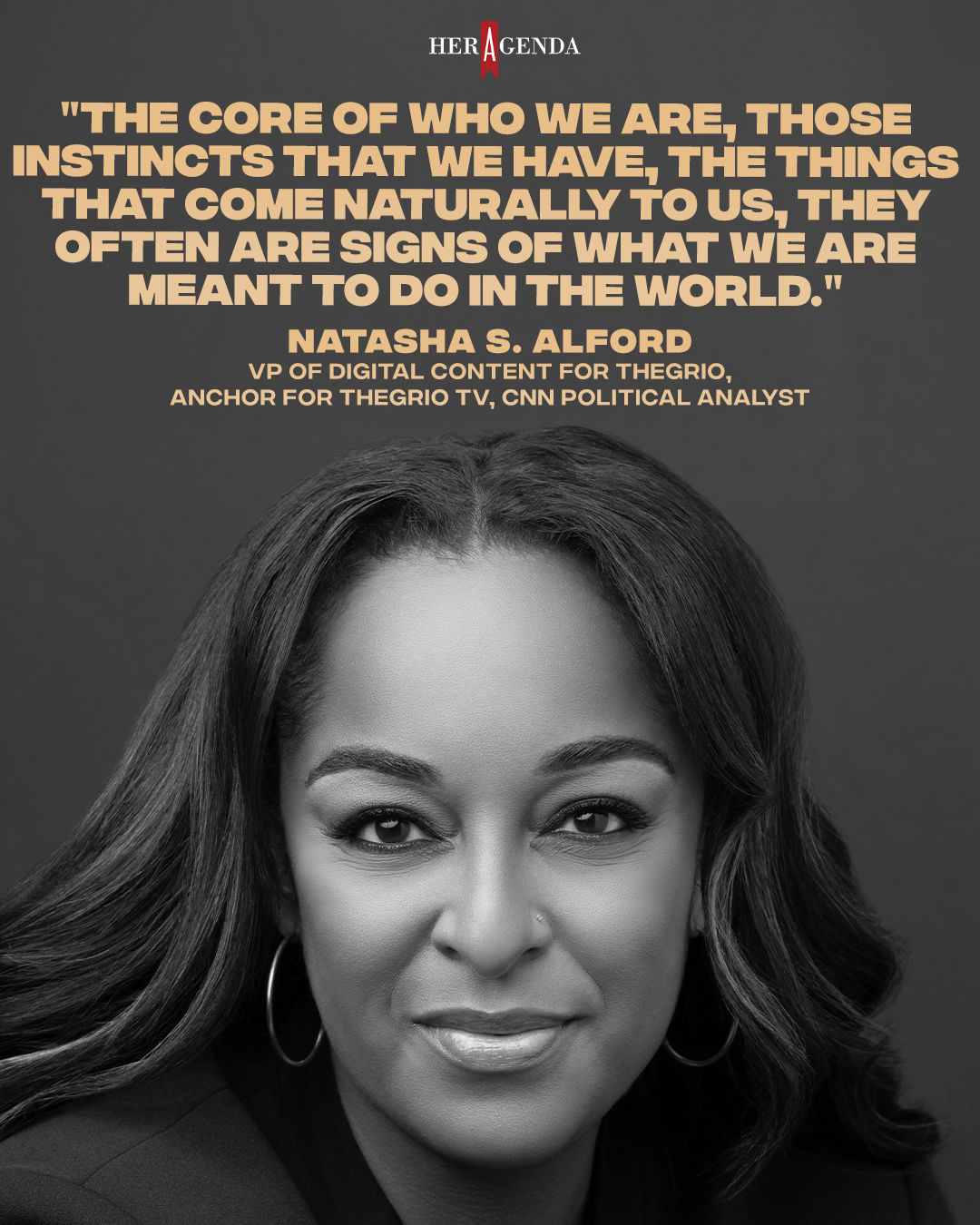
As the Vice President of Digital Content for theGrio, an anchor for theGrio TV, and a CNN Political Analyst, Natasha S. Alford’s journalistic skills are always at the forefront especially when discussing the abuse and disparities in the Afro-Latinx diaspora. But her most powerful story is her own. Natasha decided to share her lupus diagnosis after conversations with her pastors and trusted advisors. While Natasha shares that her initial thoughts were to keep it a secret, her journey to share is a lesson on owning your narrative by telling your truth in your way. She says, “It was so freeing once I did, and it made me kind of wish that I just kind of let it go earlier. When we tell our truth and we take off the mask, we free ourselves and we free others as well.”
Read more: A Peek Inside Her Agenda: Natasha S. Alford




